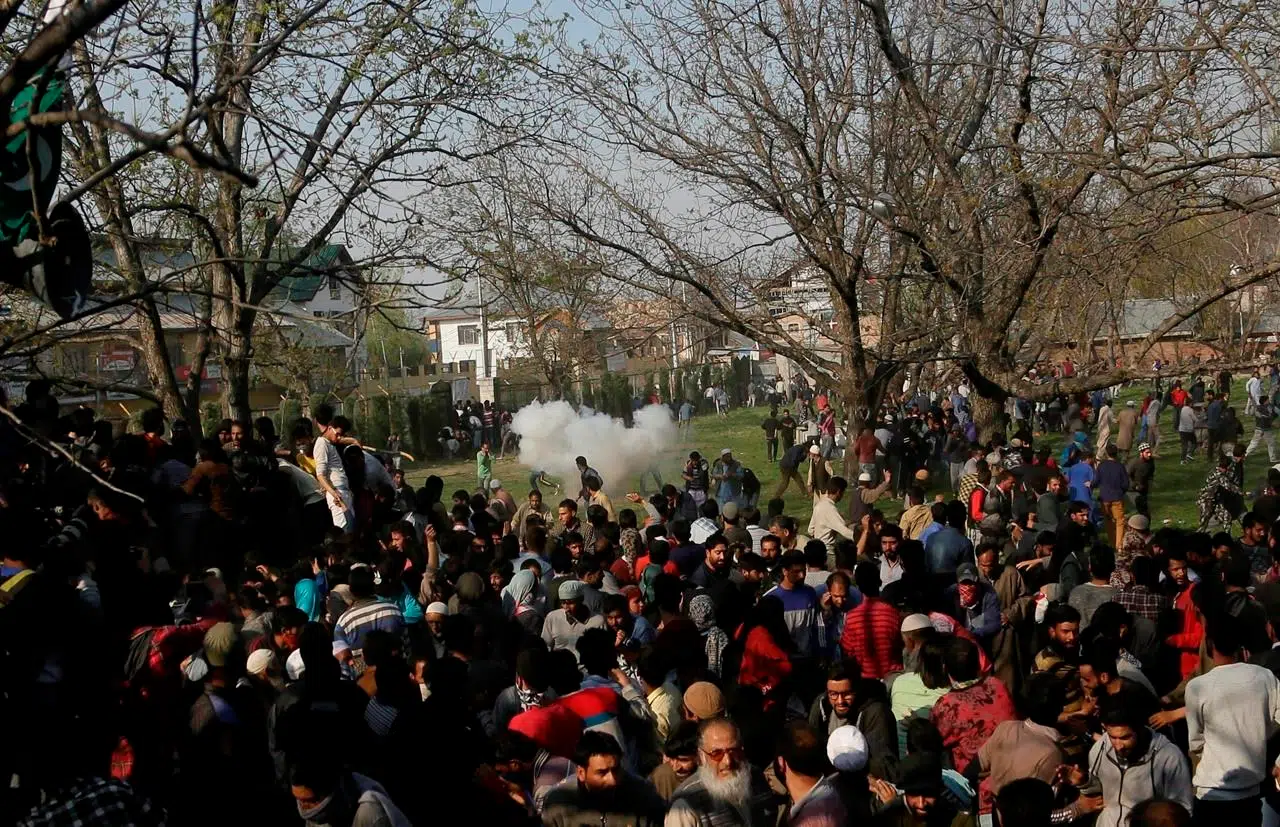
Kashmir shut by strike, security day after deadly fighting
SRINAGAR, India — A security clampdown and a strike sponsored by separatists fighting against Indian rule shut down most of Indian-administered Kashmir on Monday, a day after deadly protests and fierce fighting killed 16 combatants and four civilians.
Armed police and paramilitary soldiers in riot gear fanned out across the region and patrolled streets in anticipation of anti-India protests and clashes.
Authorities also imposed a curfew in some towns in southern Kashmir and in the old parts of the disputed region’s main city of Srinagar, the urban centre of protests and clashes against Indian rule.
Shops and businesses closed in other areas where no security restrictions were in place. Separatist leaders who challenge India’s sovereignty over Kashmir called for a shutdown on Monday and Tuesday to protest the killings.


